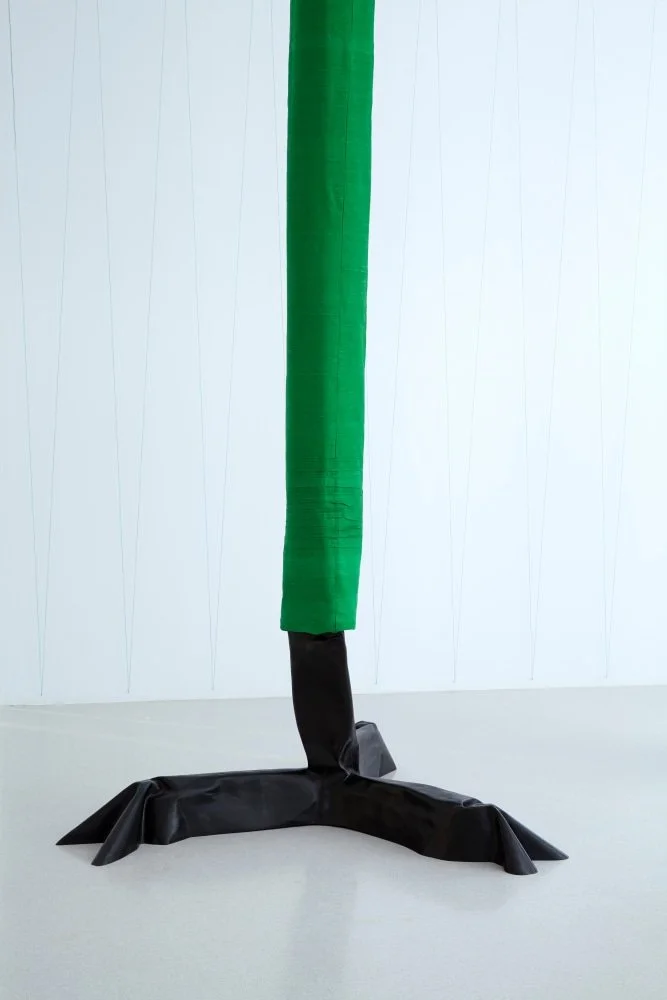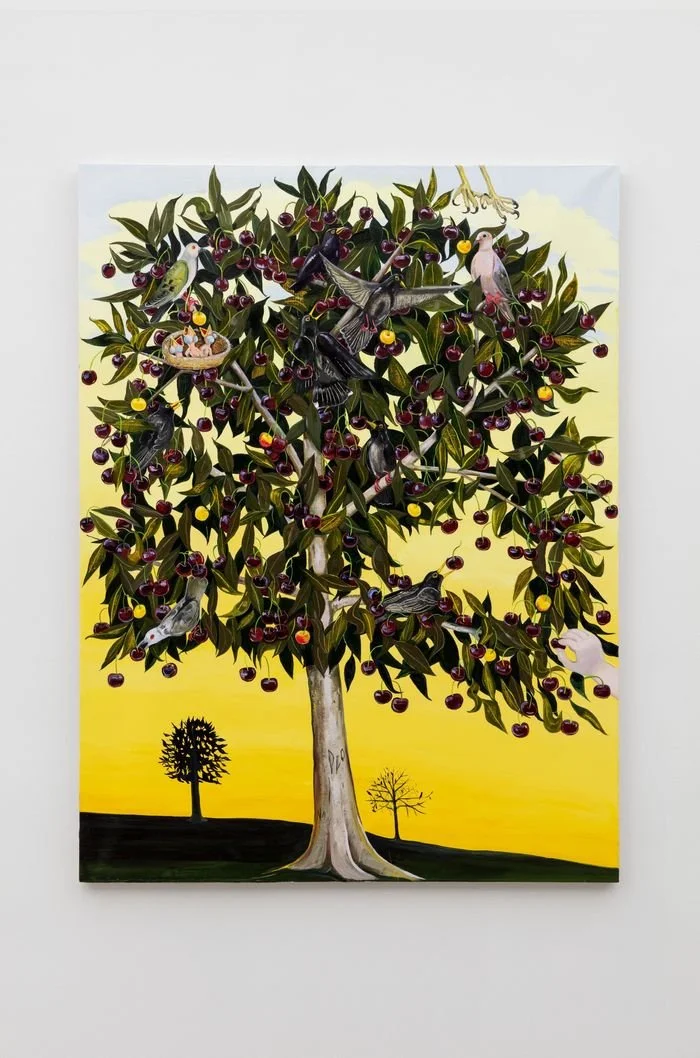Danielle Orchard
“You Are a Serpent Who’ll Return to the Ocean”
New York, 130 Orchard Street
Danielle Orchard revisits the history of painting to find new possibilities for female representation and embodiment. Her cheeky formalism plays with the grammar and iconography of modern art to create smart, arresting, and often funny images that capture the realities of contemporary womanhood. Though Orchard’s laundresses, odalisques, and bathers are rendered with the sharp and sensuous lines of cubist facture, in their details, they shed the rigidity and sexism of painterly tradition. Freed from the strictures of the male gaze, liberated from misogynist fantasy, these stock characters of art history become self- possessed and self-aware, drolly unsettling the preconceptions of the viewer. Orchard’s washerwomen scrub thongs, not shirtsleeves; their bathtubs are spaces reserved as much for preening as for catching up on some light reading. When they recline, it is at their own pleasure, sprawled out beside slices of pepperoni pizza and bowls overflowing with junk food.
DANIELLE ORCHARD An End in Sight, 2022 Oil on linen 213.4 × 261.6 cm | 84 × 103 inch
For her first exhibition at Perrotin New York, Orchard continues to expand the borders of female representation but does so with a new sense of personal urgency. As Orchard explains, she began theorizing the exhibition around the same time that she made the decision to have a child. Early stages of planning and painting coincided with the conception of her pregnancy, while later ones overlapped with that pregnancy’s premature end. The exhibition title, You Are a Serpent Who’ll Return to the Ocean, is adapted from a highly enigmatic phrase from an encounter at the hospital shared with Orchard moments before her miscarriage. Bookended by intimate physical transformation, the works on view ricochet between optimism, grief, and absurdism, conveying the hopefulness of pregnancy, the devastation of miscarriage, and the sense of humor required to cope with this form of loss—one that is rarely shown in popular media despite its prevalence.
Full of rounded breasts and swollen bellies, Orchard’s new paintings revel in the nude pregnant form, paying homage to work by artists like Paula Modersohn-Becker. At the same time, they comment on the fragility of pregnancy through tongue-in-cheek allusions to infertility in the form of wilting flora, contorted fruits, and broken or fried eggs. Inspired by Andrew Wyeth’s ethereal Day Dream (1980), Our Sympathies (After Wyeth) (2023) was originally intended to capture a scene of luxuriant rest. The present version, instead depicts moment of anxious recuperation. A woman spread out on a daybed clutches a lightly distended stomach, her eyes hollowed with fatigue. Her caretaker, dressed in mourning attire, lingers in the doorway having just delivered a convalescent meal of sardonic symbolism, comprising one overcooked ovum and one warped peach, its fleshy curves dulled and flattened.







